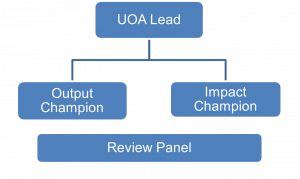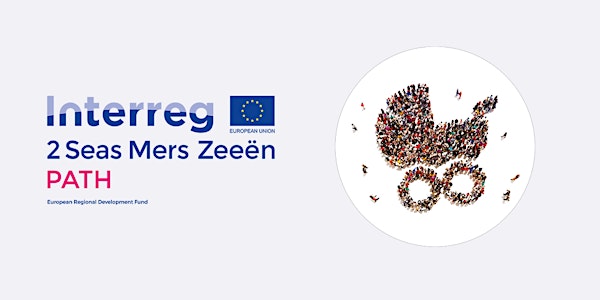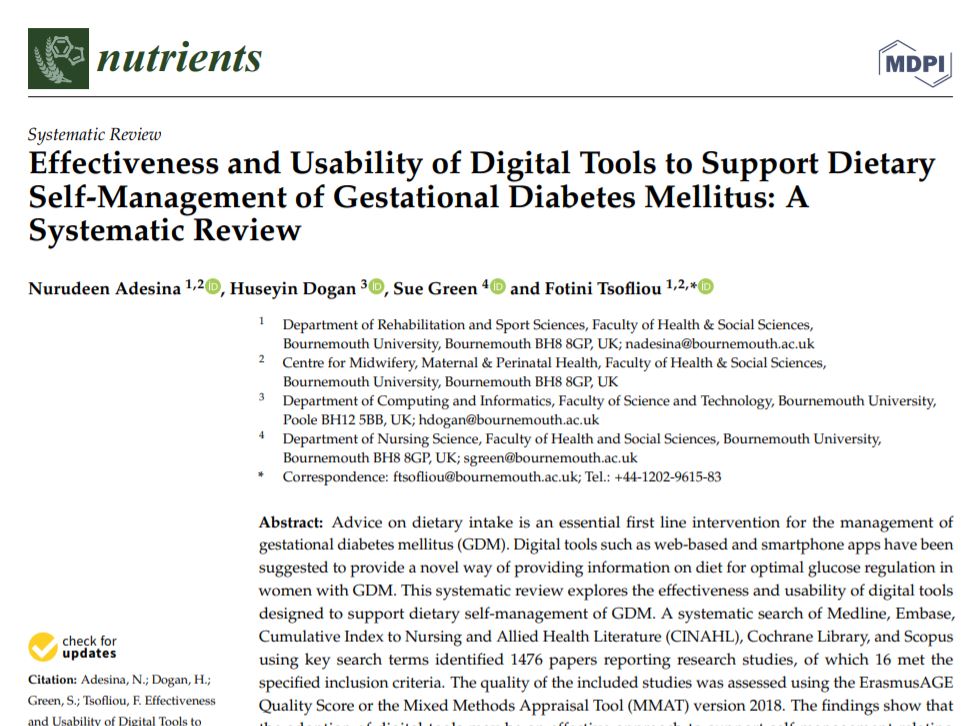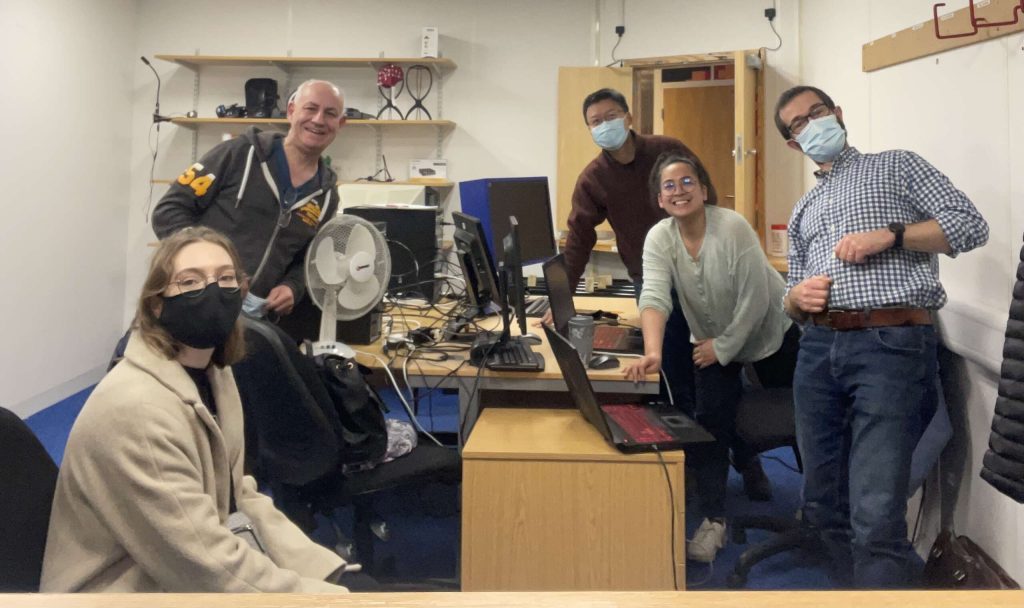We would like to cordially invite you to the 2nd symposium of the BU’s Interdisciplinary Neuroscience Research Centre on next Monday the 16th of January 2023 from 9:00-13:00 at the Inspire Lecture Theatre, Fusion Building first floor (room updated).
The symposium is entitled “New Frontiers in Neuroscience: Neuroimaging and Integrative Multi-Sensing Methods”. We will focus on these two themes from a cross-disciplinary angle, leveraging synergies between different departments at BU and our collaborators in other universities, industry, charities, and at the NHS. We think that this is a good opportunity to have informal discussions on grant proposals, also to explore shared interests with our external guests.
The schedule is:
9:00-9:15 Welcome and coffee.
9:30. Keynote talk: Prof. Mavi Sanchez-Vives, Biomedical Research Institute IDIBAPS, Barcelona (Leader of Human Brain Project Work Package 2 -Networks underlying brain cognition and consciousness-). “Brain States and Consciousness Studies in the Human Brain Project”. This talk will be online, projected on the screen. All the rest of the talks will be presential.
10.20-10:40. Coffee.
10:40-11:40. Session I. Integrating Multi-sensing approaches and Industrial Applications.
- Prof. Fred Charles (Creative Technology, FST, BU). “Multimodal Immersive Neuro-sensing approaches -introduction to the MINE cluster”.
- Dr. Ifigeneia Mavridou (EmteqLabs, Sussex Innovation Centre). “Investigating affective responses to VR environments”.
- Dr. Federica Degno (Psychology Department, FST, BU). “Co-Registration of Eye Movements and EEG”.
11.40 -12.00. Coffee and grants discussion.
12.00-13:00. Session II. Neuroimaging and Clinical Neuroscience. Concluding remarks.
- Dr. Ruth Williamson (Deputy Chief Medical Officer, UHD; Consultant Radiologist). “The effect of cold-water immersion on brain function”.
- Prof. Carol Clark (Rehabilitation and Sport Sciences, HSS, BU). “Measuring the brain structure, function and cognition of women currently engaged in sporting activities”.
- Prof. Brigitte Vollmer (Southampton General Hospital, Southampton University). “Neurodevelopmental trajectories and neural correlates in children with neonatal Hypoxic Ischaemic Encephalopathy”.
Please, feel free to forward this email to any colleague/students who may be interested. If you have any queries, please do not hesitate to contact any of us (Ellen Seiss, eseiss@bournemouth.ac.uk, Emili Balaguer-Ballester eb-ballester@bournemouth.ac.uk). For those of you who cannot make it, we will use Zoom, and it will be recorded (please see the Zoom link below this post).
After the event and having some lunch (can be bought in the same building) there are follow-up activates, if you wish to:
- In the same lecture theatre, at 14h, there will be a very interesting talk, sponsored by the MINE cluster-Department of Psychology seminars, by Dr. Benjamin Schoene (Universität Osnabrück), entitled “The Brain in Virtual Reality: A Novel Perspective on Psychological Science”.
- The talk will be followed by a visit to the Multimodal Immersive Neuro-sensing lab for natural neuro-behavioural measurement, which is just next to the Fusion Building (MINE lab, Tolpuddle Annex 1, TAG02) .
Thank you very much, we are looking forward to seeing you on Monday.
Kind regards,
Ellen and Emili

Emili Balaguer-Ballester is inviting you to a scheduled Zoom meeting. Join Zoom Meeting
https://bournemouth-ac-uk.zoom.us/j/86099638587?pwd=aFNETFVCNXY5MW1jZG5aOFpJVTZ3QT09
Meeting ID: 860 9963 8587
Passcode: irf*he$6
One tap mobile
+13092053325,,86099638587#,,,,*83880856# US
+13126266799,,86099638587#,,,,*83880856# US (Chicago)
Dial by your location
+1 309 205 3325 US
+1 312 626 6799 US (Chicago)
+1 346 248 7799 US (Houston)
+1 360 209 5623 US
+1 386 347 5053 US
+1 507 473 4847 US
+1 564 217 2000 US
+1 646 558 8656 US (New York)
+1 646 931 3860 US
+1 669 444 9171 US
+1 669 900 9128 US (San Jose)
+1 689 278 1000 US
+1 719 359 4580 US
+1 253 205 0468 US
+1 253 215 8782 US (Tacoma)
+1 301 715 8592 US (Washington DC)
+1 305 224 1968 US
+44 203 901 7895 United Kingdom
+44 208 080 6591 United Kingdom
+44 208 080 6592 United Kingdom
+44 330 088 5830 United Kingdom
+44 131 460 1196 United Kingdom
+44 203 481 5237 United Kingdom
+44 203 481 5240 United Kingdom
Meeting ID: 860 9963 8587
Passcode: 83880856
Find your local number: https://bournemouth-ac-uk.zoom.us/u/kdtV9nkL8X








 An opportunity has arisen for an Outputs Champion for Unit of Assessment (UOA) 11 (Computer Science and Informatics) to help drive preparations for the next REF. This role would initially be until summer 2022.BU is making early preparations towards units of assessment (UOAs) for the next Research Excellence Framework (REF) exercise. Each UOA has a UOA Leader, supported by Impact and Outputs Champions. The roles are recruited through an open and transparent process, which gives all academic staff the opportunity to put themselves forward for UOA Leader roles.We are currently seeking expressions of interest (EoI) from academic staff interested in supporting outputs development for UOA 11 (Computer Science and Informatics).
An opportunity has arisen for an Outputs Champion for Unit of Assessment (UOA) 11 (Computer Science and Informatics) to help drive preparations for the next REF. This role would initially be until summer 2022.BU is making early preparations towards units of assessment (UOAs) for the next Research Excellence Framework (REF) exercise. Each UOA has a UOA Leader, supported by Impact and Outputs Champions. The roles are recruited through an open and transparent process, which gives all academic staff the opportunity to put themselves forward for UOA Leader roles.We are currently seeking expressions of interest (EoI) from academic staff interested in supporting outputs development for UOA 11 (Computer Science and Informatics).












 TANGERINE project has lift off with BPC Indian Community!
TANGERINE project has lift off with BPC Indian Community! Postgraduate Research Experience Survey (PRES) 2024 – Closing today
Postgraduate Research Experience Survey (PRES) 2024 – Closing today THE INNOVATION COMMON ROOM: Going Old School
THE INNOVATION COMMON ROOM: Going Old School Apply for up to £1,000 to deliver an event and take part in a national festival of public engagement with research
Apply for up to £1,000 to deliver an event and take part in a national festival of public engagement with research MSCA Postdoctoral Fellowships 2024
MSCA Postdoctoral Fellowships 2024 Horizon Europe News – December 2023
Horizon Europe News – December 2023